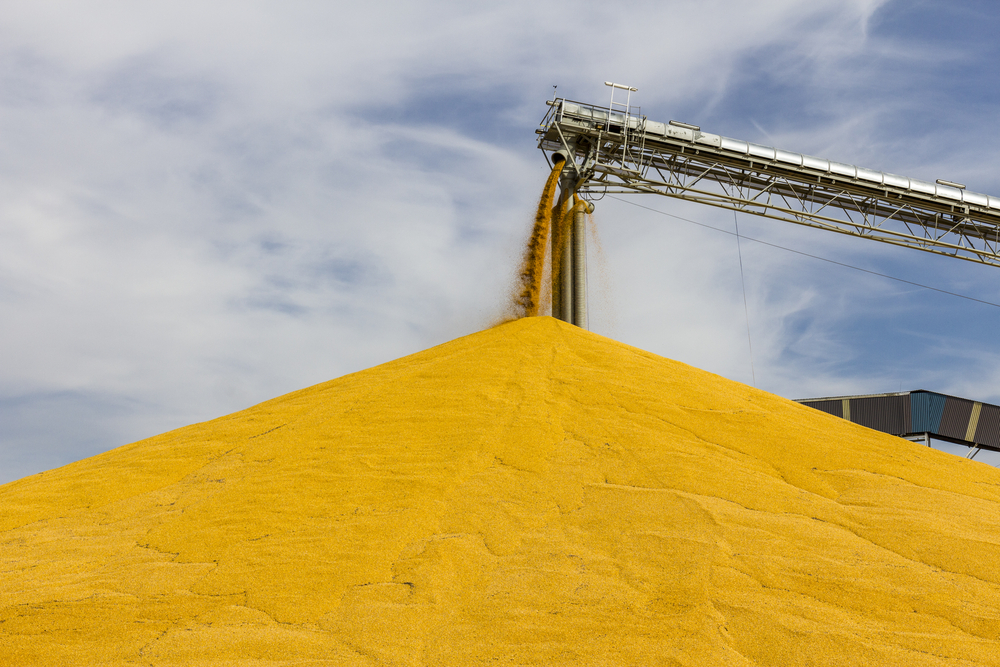Polish and Ukrainian agriculture ministers to discuss grain exports
The Minister of Agriculture and Rural Development Robert Telus and the Ukrainian Agriculture Minister Mykola Solski will hold talks on cereal exports on Wednesday, the agriculture ministry said. It is about resolving the conflict over grain exports from Ukraine.
The problem of grain imports from Ukraine was already signalled by farmers in the autumn of last year. At that time, attention was drawn to the uncontrolled so-called “technical grain” flowing into Poland. Moreover, it was pointed out that grain from Ukraine, which was supposed to be exported to other markets, practically remains in the country, destabilising the market. Farmers complained that, as a result, they could not sell their grain.
In December 2022, EU Agriculture Commissioner Janusz Wojciechowski admitted that grain imports from Ukraine after the outbreak of the war had caused some market disruption locally, including in Poland. He reported then that the European Commission was analysing the situation and might take action.
As of April this year, the EC had not taken any steps to restrict cereal imports from Ukraine. Given this, from 15 April, the Polish government decided to close the border to agricultural goods imported from Ukraine. According to the decree of the Minister of Development and Technology, the transit of goods through Poland was possible based on EU transit regulations, provided that the transit through our country ends in seaports in Gdańsk, Gdynia, Świnoujście, Szczecin or Kołobrzeg (from 28 April this year), or outside the territory of the Republic of Poland. Restrictions were then also introduced by other so-called ‘frontline’ countries.
At the end of April this year. The EC agreed with Poland, Bulgaria, Hungary, Romania and Slovakia on Ukrainian agri-food products. It was agreed that these countries would withdraw their unilateral restrictions while the EC would ban importing four products from Ukraine, wheat, maize, rapeseed and sunflower seeds, into these countries from 2 May this year. The restrictions were to be in place until 5 June 2023. They were then extended until 15 September this year.
Poland and the other frontline countries believed that the ban should be extended once again, but this was protested against by Ukraine. President Volodymyr Zelenski discussed the issue with EC President Ursula von der Leyen, who also favoured lifting the ban. In the end, the embargo was not extended.
Even before the EC decided on the grain embargo, Poland announced that if it were not extended, it would ban grain imports from Ukraine so that the interests of Polish farmers would be protected. The embargo, introduced as of midnight on 16 September, lasts indefinitely. It bans importing certain agricultural products into Poland, including wheat, maize, rapeseed, sunflower seeds, and meal from these cereals. Similar restrictions were introduced in parallel by Slovakia and Hungary.
The authorities in Kyiv have announced that they have filed a complaint with the World Trade Organisation (WTO) against Poland, Hungary and Slovakia over their extension of the embargo on Ukrainian agricultural products. Meanwhile, Ukrainian Deputy Minister of Economy and Trade Taras Kaczka, in an interview with Rzeczpospolita, signalled that Ukraine would introduce an embargo on Polish onions, tomatoes, cabbage and apples in the next few days but said the following day that the introduction of a Ukrainian embargo was the last item on the agenda, and he expected it would not happen.
Last week, Agriculture Minister Robert Telus announced that Poland would not lift the embargo on Ukrainian products until a common solution had been found to safeguard the interests of Polish farmers.
– I appealed to Minister Solski to keep these talks at a good level and friendly to all of us (…). It would be good if Ukraine withdrew its complaint (against Poland – Polish Press Agency) to the WTO,” conveyed the head of the Ministry of Agriculture and Rural Development.
On Tuesday, 26 September, the Visegrad Group talks were held in Znojmo in the Czech Republic, remotely attended by the Minister of Agricultural Policy and Food of Ukraine Mykola Solski. The V4 agriculture ministers (Poland, Czech Republic, Hungary and Slovakia) considered that Ukraine’s withdrawal of its complaint to the WTO over the grain embargo would improve the atmosphere in mutual relations.
– To my question whether Ukraine would withdraw the complaint, Ukraine’s Agriculture Minister Mykola Solski did not answer, Polish Deputy Agriculture Minister Ryszard Bartosik reported in an interview with Polish Press Agency; at the same time, he assessed that the situation in Poland on the grain market was difficult.
A briefing is planned at the Ministry of Agriculture and Rural Development on Wednesday morning after the conversation between the head of the ministry and Minister Solski.
Source: PortalMorski.pl




